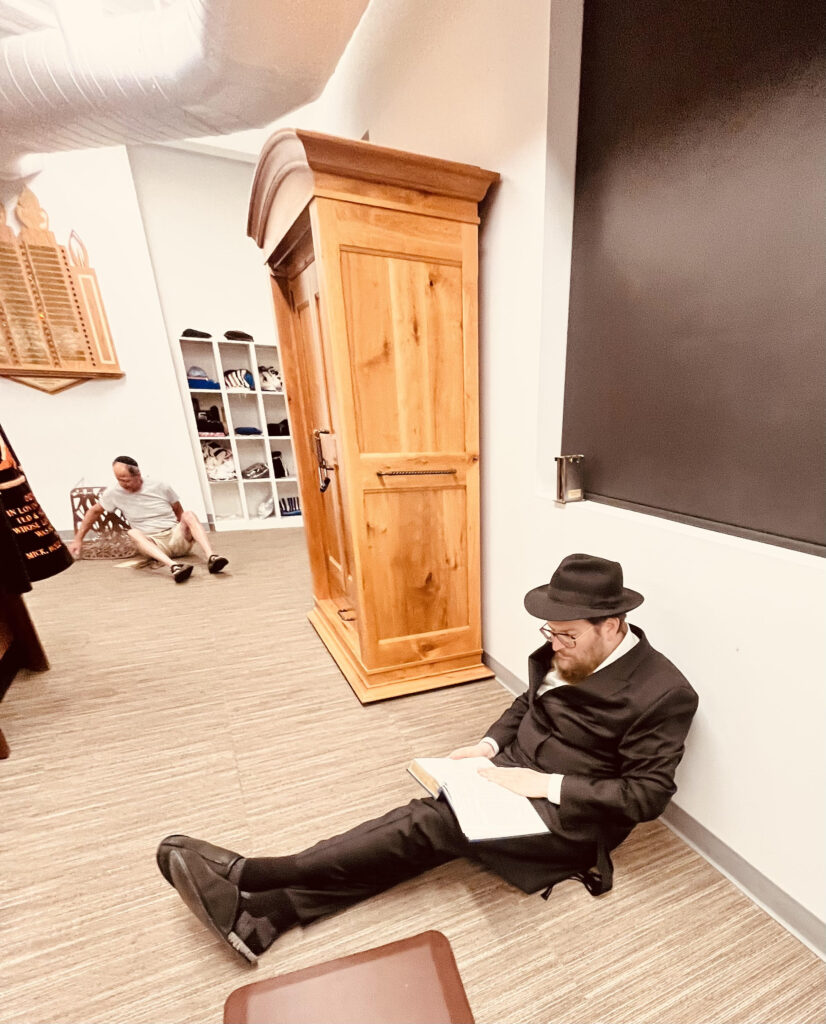Adult Kids
So apparently, there comes a time in your parenting career when you and your children disagree about whether or not they’re adults. Particularly with your oldest couple of children, who, ever since you’ve known them, have been children. And you’ve known them a really long time. Almost as long as you’ve known your spouse.
They’re insisting they are adults, based on arbitrary factors such as that they’re a certain age, and also some of their friends are married. You know that this means nothing, based on the fact that you are definitely at a certain age, and some of your friends’ kids are married, and still you don’t feel like an adult, and you know for a fact that most adults are out there just faking it. So there’s no way the generation under us are adults.
They’re like, “I’ve been around 20 years. I know how to live.” Yeah, but you don’t know how to be an adult. At most, we’ve told you to act like an adult. But that’s what we do.
I have a son who, as soon as he turned 18, basically stopped caring what we had to say. Because he’s an adult, and there’s no difference between a 40-year-old adult and an 18-year-old adult in terms of life experience. Or maybe he wants life experience, which mostly comes from making your own mistakes, without parental interference. Parental interference is cheating, and you don’t learn anything that way. We taught him that in school.
One thing about him is that he knows everything. There is nothing he doesn’t know. We should put that on his shidduch résumé.
He wants a shidduch résumé. Largely I think because his older sister has one. We have a daughter in shidduchim, who has been in the working world (as a preschool morah) for a couple of years now and uses professional teaching terms that I don’t use despite having been a teacher for almost as long as she’s been around, and I teach Language Arts. But not those terms.
And she doesn’t think we treat her like an adult either. She said this the other night over supper.
She said, “You don’t treat me like an adult.”
And we said, “What were you picturing? It’s still our house, so we make the rules. But other than that, we don’t really tell you what to do. We talk you through decisions.”
“No, you tell me what to do.”
“No, you just do what we tell you.”
We can’t really tell them what to do anymore. What are we going to punish them with if they don’t listen? They have more disposable income than we do.
So she said, “I always have to tell you what time I’m going to be home.”
And I said, “Mommy and I tell each other what time we’re going to be home.”
So she said, “You still tell me to clean my room.” And I said, “That’s because it’s our house. You’re looking to move out. It bothers us if it’s not clean, and if you don’t clean it, we’re going to go in and clean it.” And she said, “I’d rather clean it myself.” And we said, “See? We talk you through decisions!”
My daughter has been an adult for some time now and she hasn’t realized until 3 years in that we’ve been treating her like an adult this whole time, because there is not immediately a discernable difference.
So I asked, “What were you picturing?”
And she said, “I don’t know. I’m kind of disappointed.”
And I said, “Welcome to adulthood. You can do basically whatever you want, but it’s best if you make the responsible decision, which looks a lot like your parents telling you what to do.”
My son generally doesn’t come to us when he has an issue, because he doesn’t want us telling him what to do. Largely because he likes doing the opposite of whatever we would advise.
He doesn’t really think the way we think. I cleaned his room right before Pesach, because he shares it with multiple brothers, so nothing on the floor belongs to anyone. He didn’t really want me to do it because I was going to mess up his system of organization. But I cleaned the room anyway, and I found, for example, an empty pizza box! With an endorsed check in it.
Yeah, I don’t think I can wrap my head around his method of organization.
So I told him, “I found a check!”
And he said, “Don’t worry; I already scanned and deposited it.”
So I said, “You should dispose of it.”
And he said, “I did. I put it in the pizza box.”
And I said, “Not like that; what about dumpster divers?”
And he said, “Dumpster divers aren’t looking in the pizza box.” Like he knows.
This is why you don’t want smart kids. Also, there was a pizza box in his room before Pesach. That we glossed over.
My son is a second oldest, so he’s very into “me too.” The oldest gets something? Me too. The oldest is an adult? Me too. His sister is dating? Me too. Though we’re not sure how much he’s actually thought about it.
We asked, “What kind of girl are you looking for?”
“I just want a normal girl who’s chilled.”
“Who doesn’t get angry at you for doing the things you want to do?”
“Yeah, that’s pretty much it.”
“Mazel tov, you’re looking for the same thing as every other guy. Good luck.”
Okay, so maybe not everyone is easygoing. Good luck to us figuring out how to ask that question on research calls. Especially since really, most people start off easygoing. Then they get hit with responsibilities, and it kind of goes away.
So my wife asked, “What should her hashkafos be?”
And he said, “What are hashkafos?”
Because in most yeshivas, they don’t say, “These are hashkafos.” “Hashkafos shiur at 4:45.” They just teach you hashkafos!
So my wife said, “You know… How do they want to live their life ?”
And he said, “I don’t know; regular hashkafos.”
So in case you know anyone with regular hashkafos, my son is looking.
He should note that when he fills out a shidduch form: “Hashkafos: Regular.” Don’t accidentally check off “irregular”; we’ll get the wrong girl.
We’re like, “We need to know what to ask about her on your behalf. “Is she chilled? Are her hashkafoslike our son’s?” “Well, what are your son’s hashkafos?” “It’s hard to say. He barely talks to us.”
This will literally take care of itself.
My son is such a tzaddik; he knows that he has problems being respectful when he talks to his parents, so he tries not to talk to his parents.
As long as the kids live under your roof, you make the rules. So some kids want to not live under your roof. They want to live under their own roof so they can be free to do whatever they want, although obviously then they’d have to pay for the roof and utilities and insurance and a car and food, and all their disposable income would go away. If they do the math, they’ll realize that the most freedom they can have is to live under your roof, playing by your rules. Or under another roof that you pay for, such as that of yeshiva. This is how we incentivize staying in yeshiva.
He just wants to get married. Maybe so he’ll no longer have to answer all our annoying questions, such as “When are you going to be home?”
His wife is never going to ask that. She’s going to be chilled.
He says, “You always want to know whether I’m going to be home for supper. What’s the difference?” And we say, “At the very least we need to know how many pieces of chicken to make.” And he says, “But I don’t know when my job is going to end.” And I say, “You want to be married, right?”
“Yeah.”
“Okay, so right before you come home, you can call your wife and say, “I’m on my way home; please put an extra piece of chicken in the oven for me two hours ago.”
And he says, “We’re not going to have chicken so much.”
Yeah, that’s definitely my point.
He bought the pizza himself. He complains about how much we make him spend his own money. He says, “Look how often I have to buy my own supper.” And we say, “You choose to buy your own supper. You look at our supper, and you go out and buy your own.” And he says, “I don’t like it when it’s not hot anymore. Or when it’s reheated.”
“So tell us when you’re coming home!”
“See, I don’t want someone who’s gonna yell at me like this. This is not chilled.”
Oh, now we understand.
Congratulations. They think they know everything, but they don’t really. They also want to enter into a whole parashah we forgot to prepare them for. We prepared them for life, but we forgot to teach them how to be adults in that life.
And now we have another 18-year-old coming home from Eretz Yisrael. It’s very exciting! Particularly because the other son’s stuff has been living all over his bed.n
Mordechai Schmutter is a weekly humor columnist for Hamodia and is the author of seven books, published by Israel Book Shop. He also does freelance writing for hire. You can send questions, comments, or ideas to [email protected]. Read more of Mordechai Schmutter’s articles at 5TJT.com.















